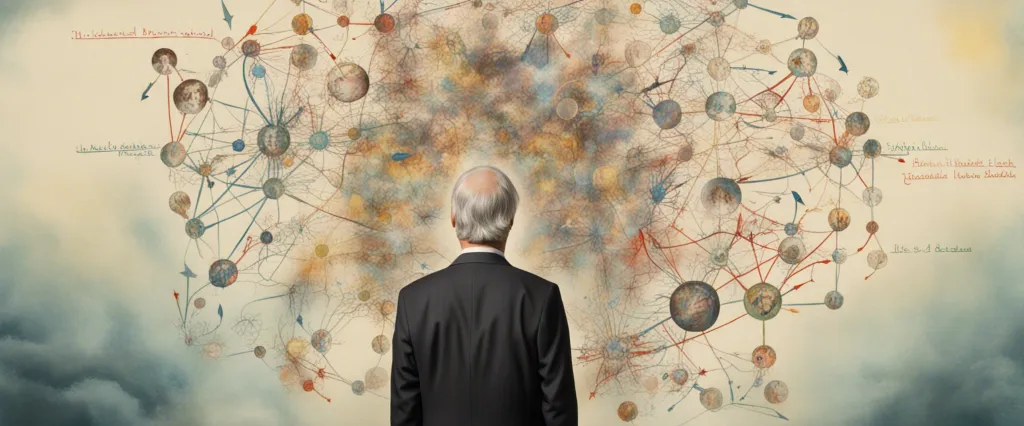
In the vast realm of literature, countless books have been penned, each with its own distinctive perspective, purpose, and impact on the readers. Some books have the ability to challenge conventional beliefs and ignite profound discussions on the nature of existence and spirituality, while others invite us to question the foundations of our beliefs and explore the limitless possibilities of scientific inquiry. This comparative study aims to delve into two such remarkable works, Epictetus’ “Enchiridion” and Richard Dawkins’ “The God Delusion,” examining the philosophical concepts of stoicism and atheism respectively. Despite originating from different time periods and philosophical perspectives, both texts share a common goal—to unravel the complexities of human existence, morality, and the pursuit of truth. By analyzing the principles advocated by Epictetus and Dawkins, we hope to gain a deeper understanding of the contrasting viewpoints they offer, their divergent approaches to confronting life’s challenges, and the implications they hold for our contemporary society.
Brief Summary of Two Books
Enchiridion by Epictetus
The Enchiridion, also known as The Handbook, is a manual of Stoic philosophy written by the ancient Greek philosopher Epictetus. The book is a concise guide that outlines the principles and teachings of Stoicism, a philosophy focused on developing inner tranquility and living a virtuous life.
The book begins by emphasizing the idea that human beings have control over their own thoughts, perspectives, and reactions, but not over external events. Epictetus suggests that true happiness comes from recognizing this distinction and accepting whatever happens with equanimity. He encourages readers to focus on what is within their control – their own thoughts, choices, and actions – and to disregard external circumstances, which are often unpredictable and uncontrollable.
Epictetus also discusses the importance of distinguishing between what is truly good and what is merely preferred. He argues that only virtuous actions and character traits should be considered as truly good, while external possessions and circumstances should be regarded as indifferents. By practicing self-discipline and cultivating virtues such as wisdom, courage, and justice, individuals can align themselves with the natural order of the universe and live a more fulfilling and meaningful life.
Throughout the Enchiridion, Epictetus uses practical examples and aphorisms to illustrate his teachings. He advises readers to detach themselves from desires and attachments, to avoid being disturbed by other people’s actions, and to maintain a calm and balanced state of mind. The book also emphasizes the importance of accepting and embracing one’s fate, and of recognizing that happiness lies in the ability to adapt and respond to whatever life presents.
In summary, the Enchiridion is a profound and influential Stoic text that provides readers with practical guidance on how to cultivate inner peace, live a virtuous life, and find true happiness amidst life’s challenges and uncertainties.
The God Delusion by Richard Dawkins
“The God Delusion” by Richard Dawkins is a book that explores and criticizes the concept of God and organized religion. Dawkins, a well-known evolutionary biologist and atheist, presents arguments against the existence of God, questioning religious beliefs, faith, and their impact on society.
In the book, Dawkins begins by discussing various religious beliefs and their inconsistencies, highlighting the conflicts between science and religion. He argues that religious faith is based on unfounded and irrational beliefs, dismissing them as mere delusions. Dawkins also presents scientific evidence and rational explanations for the origin and complexity of life, suggesting that they render the need for a creator unnecessary.
Dawkins further discusses the harm caused by religion, arguing that it perpetuates ignorance, intolerance, and violence. He criticizes the influence of religion on various aspects of society, including education, morality, politics, and ethics.
Throughout the book, Dawkins challenges the idea that morality and purpose in life are solely derived from religious beliefs, presenting a secular perspective on morality and ethics. He advocates for a more rational and evidence-based approach to understanding the world, suggesting that science and reason provide a more reliable foundation for morality and purpose.
Overall, “The God Delusion” offers a comprehensive critique of religion, challenging its validity and promoting a more secular and scientific worldview. It has sparked extensive debates and discussions on the existence of God and the role of religion in the modern world.
Comparison between Two Books

Similarities in Philosophy
While the Enchiridion by Epictetus and The God Delusion by Richard Dawkins discuss vastly different topics, namely philosophy and religion respectively, there are some underlying similarities in their philosophical approaches:
1. Rationality and Reason: Both Epictetus and Dawkins emphasize the importance of rationality and reason in shaping one’s beliefs and actions. Epictetus advocates for the use of reason to distinguish between what lies within our control and what does not, while Dawkins promotes the application of reason to challenge religious beliefs and superstitions.
2. Skepticism: Both authors employ a level of skepticism towards certain beliefs and practices. Epictetus encourages individuals to question their desires and attachments, urging them to examine if these are truly beneficial. Similarly, Dawkins applies skepticism towards religious doctrines and dogmas, encouraging readers to critically analyze the evidence presented for religious claims.
3. Ethics and Virtue: Epictetus focuses on developing virtues such as self-discipline, serenity, and resilience to navigate life’s challenges. Meanwhile, Dawkins argues for the development of secular ethics, suggesting that moral behavior can be derived from human empathy and societal values, rather than religious doctrines.
4. Self-Awareness and Mindfulness: Both authors stress the importance of self-awareness and mindfulness in order to live a fulfilling life. Epictetus advocates for individuals to constantly examine their thoughts and actions to better align them with reason and virtue. Dawkins, although focusing more on the societal level, encourages individuals to be mindful of the power and influence of religion on themselves and society at large.
5. Freedom from Attachment: Epictetus emphasizes the importance of detachment from external worldly desires and outcomes, suggesting that true freedom lies within ourselves rather than external circumstances. Similarly, Dawkins argues for freedom from religious indoctrination and dogmas, urging individuals to emancipate themselves from the constraints of religious belief systems.
Overall, while the specific subject matter of the Enchiridion and The God Delusion differs, both Epictetus and Dawkins share some common philosophical themes centered around reason, skepticism, ethics, self-awareness, and freedom.
Divergences in Philosophy
Enchiridion by Epictetus and The God Delusion by Richard Dawkins represent two distinct perspectives and explore different aspects of philosophy. While both texts are concerned with understanding human existence, they diverge in their approach, focus, and the questions they seek to answer.
Epictetus’ Enchiridion, a compilation of his teachings, revolves around Stoic philosophy. Epictetus emphasizes personal ethics and the importance of cultivating one’s inner virtue to find happiness and tranquility. The Enchiridion focuses on our ability to control our own thoughts, emotions, and actions, arguing that true freedom lies in accepting the things we cannot change and focusing on our own virtue. Epictetus encourages individuals to detach themselves from external desires and to strive for self-improvement.
On the other hand, Richard Dawkins’ The God Delusion takes a more critical and scientific approach, challenging the existence of God and organized religion. Dawkins, an evolutionary biologist, argues that belief in God is a product of human evolution and can be explained through naturalistic explanations. He focuses on debunking religious beliefs, asserting that religious dogma hinders scientific progress and promotes irrational thinking. Dawkins highlights the contradictions and negative impact of religion while advocating for atheism and the embrace of evidence-based knowledge.
In terms of divergence in philosophy, the primary contrast lies in the nature of their inquiry. Epictetus’ Enchiridion is concerned with the individual’s internal state, personal ethics, and self-improvement. It seeks to guide individuals toward inner peace and the cultivation of virtue, emphasizing the power of self-control and acceptance of one’s limitations. Epictetus’ philosophy aims to help individuals find contentment and fulfillment in their own lives, irrespective of external circumstances.
Conversely, Dawkins’ The God Delusion explores the existence of God and the impact of religion on society. His philosophy primarily focuses on dismantling religious beliefs and advocating for scientific rationality. Dawkins seeks to challenge religious dogma, promote skepticism, and encourage the adoption of evidence-based thinking. His criticism is aimed at the societal implications of religion, highlighting its potential harm and arguing for the rejection of faith.
In summary, while both books delve into philosophical matters, the Enchiridion by Epictetus emphasizes personal virtue, inner peace, and self-improvement, while The God Delusion by Richard Dawkins critiques religion and advocates for atheism and scientific rationality. The divergence in philosophy between these two works lies in their respective focuses and approaches, with Epictetus exploring personal ethics and individual happiness, while Dawkins scrutinizes religious beliefs and their societal consequences.

Conclusion
If you are interested in philosophy and the concept of stoicism, then “Enchiridion” by Epictetus might be more worthy of reading. It offers practical advice and teachings on how to live a virtuous and meaningful life, emphasizing the importance of self-control and focusing on what is within our control. Epictetus’ philosophy has had a profound impact on many individuals throughout history and still remains relevant today.
On the other hand, if you are interested in exploring atheism and the arguments against the existence of God, then “The God Delusion” by Richard Dawkins might be more appealing. This book delves into the criticisms of religion and faith, offering a scientific and rational perspective on how the universe and life can be explained without the need for a higher power. It has become a popular text among atheists and has spurred debates on the topic of religion.
Ultimately, both books offer valuable insights in their respective fields. It is up to you to decide which subject matter aligns more with your interests and which book you believe will provide you with the most rewarding reading experience.


